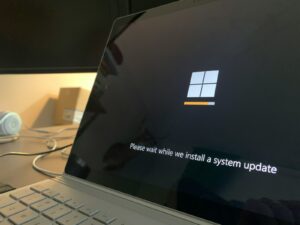Turning MSPs into LSIs: A Strategy to Tackle Shadow IT and Cloud Sprawl
Some Friday Big Ideas. I want to highlight Rich Freeman’s recent Channelholic, discussing why Managed Service Providers (MSPs) should consider becoming Local Solution Integrators (LSIs). It highlights the potential...
More from Podcast StoryMore posts in Podcast Story »
- FCC Votes to Restore Net Neutrality, Reclassifying Broadband as Essential Service
- AI’s Role in the Workplace: Enhancing Productivity Without Displacing Jobs, According to New Study
- Microsoft Urged to Rebuild Trust Amid Security Breaches and Rising Criticism
- FTC Votes to Ban Noncompete Agreements, Predicting $300 Billion Wage Increase Annually
- Apple Cuts Vision Pro Headset Forecast Amid Cooling Demand, Delays Cheaper Model

 Unlock with Patreon
Unlock with Patreon


